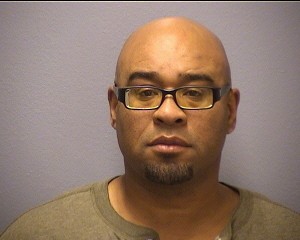
Laguna Beach police investigators say they cracked a credit-card fraud ring last week and arrested its alleged ringleader, a Costa Mesa man who bought stolen account information in underground secret forums and converted gift cards into phony credit cards.
Dwight Christian Vaccaro, 46, was arrested last Thursday, Sept. 22, at his home in Costa Mesa where detectives served a search warrant, Laguna police Sgt. Robert Rahaeuser said Tuesday.
Court and Bureau of Prison records show Vaccaro was released from a federal prison last August following a 1991 conviction on several drug charges. He posted bail and was released from the city’s jail, Rahaeuser said.
Laguna investigators seized about 75 fraudulent credit cards, computers and other electronic devices used to convert gift cards into credit cards from Vaccaro’s home, said Rahaeuser, who could not estimate the duration of the scam.
Though Laguna police frequently receive reports from local residents victimized by identify thieves, Vaccaro’s victims appear to be mostly east coast residents, but it will take investigators weeks to determine the extent of losses, Rahaeuser said. “Banks will not provide info without a search warrant; this will be very time intensive,” he said.
In the last week, police served five search warrants and made four arrests related to the investigation, though detectives are still seeking arrest warrants for two others involved, he said.
According to Beth Givens, director of the San Diego-based Privacy Rights Clearinghouse, the sale of stolen information takes place in underground marketplaces run by criminals, who typically obtain information from hackers. The price for personal financial data ranges from $8 to $24, with a premium set on an account with a large credit limit, explained Givens.
In “Kingpin,” published earlier this year, former hacker Kevin Poulson described a character who earned $1,000 a day selling stolen information. “It’s a terrible problem,” Givens said.
Vaccaro allegedly paid to acquire lists of personal identification about account holders at different banks from online chat rooms. He would then alter gift cards by adding a legitimate 16-digit account code to the magnetic strip and emboss the cards with the account holder’s information so they appeared to be authentic debit cards, Rahaeuser said. “He would then sell or trade these cards to people in his group,” he said, who would use them to make purchases or buy goods with the intention of returning the purchases for cash.
The investigation began as a result of a 3 a.m. arrest behind the White House restaurant on Monday, Sept. 19. Patrolling officers spotted two naked adults drinking alcohol in the backseat of a car, whose dash and front seat were strewn with 43 fraudulent credit cards, Rahaeuser said, speculating that the cards fell out of the headliner.
As a result of the initial arrest, the following day investigators staked out the Huntington Beach home of Charles Martin, 22, who was arrested for alleged fraudulent use of credit cards, conspiracy and commercial burglary. He, too, posted bail, set at $20,000, and was released from the city’s jail, Rahaeuser said.
Martin allegedly used six credit carts “and went on a shopping spree and purchased $800 worth of clothing,” at an unspecified retailer, Rahaeuser said. Martin intended to return the purchases in exchange for cash, he said.
The case, “serves as a very good reminder to take steps to protect your personal identity,” said Rahaeuser, who urged credit card account holders review monthly statements to ensure they have not become a victim.
In addition, Givens urges consumers to avoid using debit cards altogether since fraud victims are better protected under federal laws regulating credit cards.
Even so, she faults U.S. credit issuers for sticking with magnetic strip technology that is easy to counterfeit because fraud losses are lower than the cost of adopting new technology. “In other words, U.S. credit card companies are willing to saddle their customers with the problems of rampant fraud rather than spend the money to adopt a technology that has been proven to work in other countries,” Givens said.





[…] View full post on credit card fraud – Yahoo! News Search Results […]